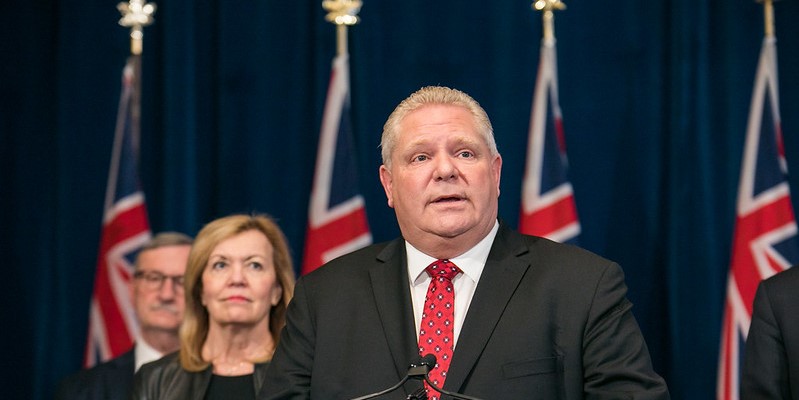Ontario’s budget includes path to balance, but party with taxpayer money is not over

The Ford government released its 2023 provincial budget on Thursday. In the weeks leading up to the budget, Finance Minister Peter Bethlenfalvy talked about the need to show fiscal restraint with government finances. While the budget includes a path back to balance, this improvement has far more to do with a surge of revenue for the province than spending restraint.
In the 2023/24 fiscal year, the Ford government projects a $1.3 billion budget deficit. However, the fiscal plan includes a return to a small surplus in 2024/25 and another surplus that could be as high as $4.4 billion by 2025/26. This is a substantial improvement from last spring when the government didn’t expect a surplus before 2027.
It’s important to recognize why this dramatic change in fortune is occurring though.
Provincial revenues are forecasted to be $16.2 billion higher in 2023/24 than the government anticipated in Budget 2022. As stated in this year’s budget, revenues have jumped significantly primarily due to inflation, higher taxation revenues, and larger federal transfers. Revenues are also expected to increase by $16.1 billion in 2024/25 compared to last spring’s projections.
Contrary to the rhetoric from the Finance Minister though, Ontario was not as restrained with spending as suggested. Program spending (total spending excluding interest costs) is projected to increase by $5.8 billion in 2023/24 and $8.3 billion in 2024/25 compared to last spring’s budget forecast.
Had the government simply maintained its previous spending plan from Budget 2022 and saved the additional revenue it expects to receive, Premier Ford could’ve been on track to run a $5.5 billion surplus during 2023/24. Ontario could’ve also increased the forecasted surplus for 2024/25 from $200 million to $10.5 billion by sticking to their original spending estimates.
Clearly, the government was not as disciplined with its spending as it should’ve been. But this is not surprising given the government’s track record since entering office.
Premier Ford has demonstrated a proclivity to spend that closely resembles the behavior of his predecessors. On the campaign trail in 2018, then-candidate Doug Ford stated that “there’s billions of dollars being wasted” and “the party is over with the taxpayers’ money”. After taking office though, the premier marched to a different tune.
During Premier Ford’s time in office to-date, spending has significantly outpaced the combined effect of inflation plus population growth. Spending under the Ford government has consistently been higher than it was under Wynne—whom Ford criticized frequently as a big spender during the election in 2018. Between 2017 and 2022, per-person spending (inflation-adjusted) has grown from $12,151 to $12,969.
To be fair, today’s budget does reduce per-person spending to $12,405 in 2023/24 so the government did demonstrate more belt-tightening than it had in the past by keeping the pace of spending growth below the combined rate of inflation and population growth. However, it’s not just the growth rate that matters, but also the level of spending. Throughout the next three years, per-person spending levels will remain above the levels Premier Ford inherited in 2018.
On the positive side, the province’s net debt is forecasted to decline relative to the size of the Ontario economy after 2023/24. This means the province’s finances appear to be sustainable over the short-term because the economy is projected to grow faster than government debt.
But we cannot ignore the province is still adding $10.6 billion in net debt for 2023 and plans to increase debt by roughly another $24 billion over the subsequent two years. Ontarians are the ones who bear the weight of this additional debt. Going into the budget, the province was already one of the most indebted in Canada.
While there was some progress made in the Ontario budget by including a quicker path back to balanced budgets, the improved fortune of provincial finances is almost entirely due to a surge in revenue. Provincial spending rose from previous expectations and debt continues to grow. It appears the party with Ontarian taxpayers’ money is not over yet.
Author:
Subscribe to the Fraser Institute
Get the latest news from the Fraser Institute on the latest research studies, news and events.

